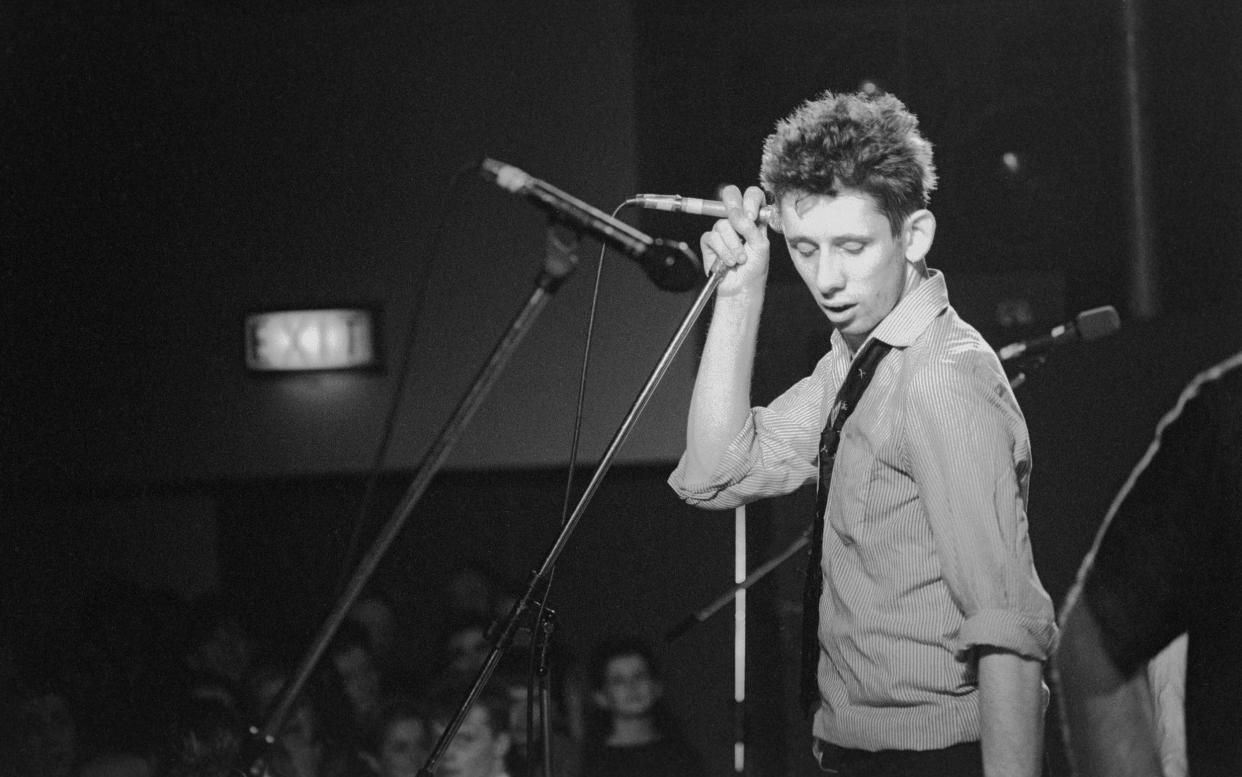Crock of Gold: A Few Rounds with Shane MacGowan, review: Johnny Depp, Gerry Adams and a boozy mess

- Oops!Something went wrong.Please try again later.
- Oops!Something went wrong.Please try again later.
- Oops!Something went wrong.Please try again later.
Dir: Julien Temple. Cast: Shane MacGowan, Johnny Depp, Gerry Adams, Bobby Gillespie, Victoria Mary Clarke (as themselves). 18 cert, 124 mins.
Julien Temple’s Crock of Gold gives us the life story of Shane MacGowan straight from the horse’s mouth, as it were, though it often feels as if said horse has just been administered with 15ccs of ketamine. The 62-year-old Pogues frontman is, without question, a deserving case for a music documentary. But after decades of famously hard living, the man is also no Peter Ustinov: his recollections are fragmentary, defensive, sometimes barely audible, and often reluctantly shared.
The challenge for Temple, the director of the Sex Pistols documentaries The Great Rock ’n’ Roll Swindle and The Filth and the Fury, is making MacGowan an engaging companion for a story that’s two hours long and not especially uplifting. We follow the singer-songwriter from his chaotic early childhood in Ireland (he was smoking and drinking by the age of five) to his unhappy education at London’s Westminster School, his emergence on the city’s punk scene in the late 1970s, and The Pogues’ rise and collapse in the decade that followed.
The inflection point of this seems to have been the 1987 release of Fairytale of New York – “the biggest Christmas song of the 21st century,” an on-screen caption claims, a little vaguely. (In fact it was named “the most-played Christmas song in the UK” by the music licensing body PPL in 2015.) It’s a whole 85 minutes before Crock of Gold reaches the track that was presumably the rationale behind its December release, and not much insight is offered beyond MacGowan’s claim that the song was “our Bohemian Rhapsody”. (The modern-day controversy over its more robust lyrics is mercifully ignored.)
Temple has a number of strategies up his sleeve to keep things interesting, which he deploys with varying degrees of success. The first, and most basic, is the addition of subtitles to MacGowan’s dialogue, without which the film would have been incomprehensible. Sobriety isn’t the issue here: it’s that most of his words have been culled from archive interviews, many of which sound as if they were recorded at the bottom of a bathtub.
Another is inspired – though you sense MacGowan may have tired of it quite quickly, considering how little of it we actually see. Temple plonks MacGowan in a pub by himself, then plays back these old recordings to him, in the style of Krapp’s Last Tape. Watching him listen to his younger self is genuinely affecting, while the sly Samuel Beckett reference helps with Temple’s broader aim of setting MacGowan in the great tradition of drink-doused Irish philosopher-scribes alongside Beckett, James Joyce, Flann O’Brien and Brendan Behan. (MacGowan himself singles out Joyce and Behan for praise, before pouring a bucket of scorn over WB Yeats for not being “Irish enough”.)
A third is ghastly. Either in the pub or his living room, MacGowan is interviewed by a number of celebrity allies, including Johnny Depp (a friend of 30 years, who is also credited as a producer) and the former Sinn Fein president Gerry Adams, both of whom look greasily delighted to be basking in their subject’s reflected glow. In one depressing exchange that could have been culled from an edition of the Viz strip Drunken Bakers, Depp likens MacGowan’s legendary capacity for alcohol to a scene in the first Pirates of the Caribbean film.
“What makes you think I was able to stay awake through Pirates?” MacGowan blearily counters, to which Depp honks in response: “What makes you think I did?”
Such clubbiness does Crock of Gold no favours, especially when more pressing matters go conspicuously unaddressed – not least the specifics of his physical decline. In the new interview footage, MacGowan appears in a wheelchair, seemingly near-paralysed, though how much this has to do with an (undiscussed) 2015 fall and how much is down to drink and drugs is a matter daintily brushed aside.
Temple has set out to burnish MacGowan’s legend with this film, and he does. But for all the gory details on show, the man himself remains only partially revealed.
Crock of Gold: A Few Rounds with Shane MacGowan will be shown on BBC Four at 10pm on March 16n DVD/streaming from Monday

